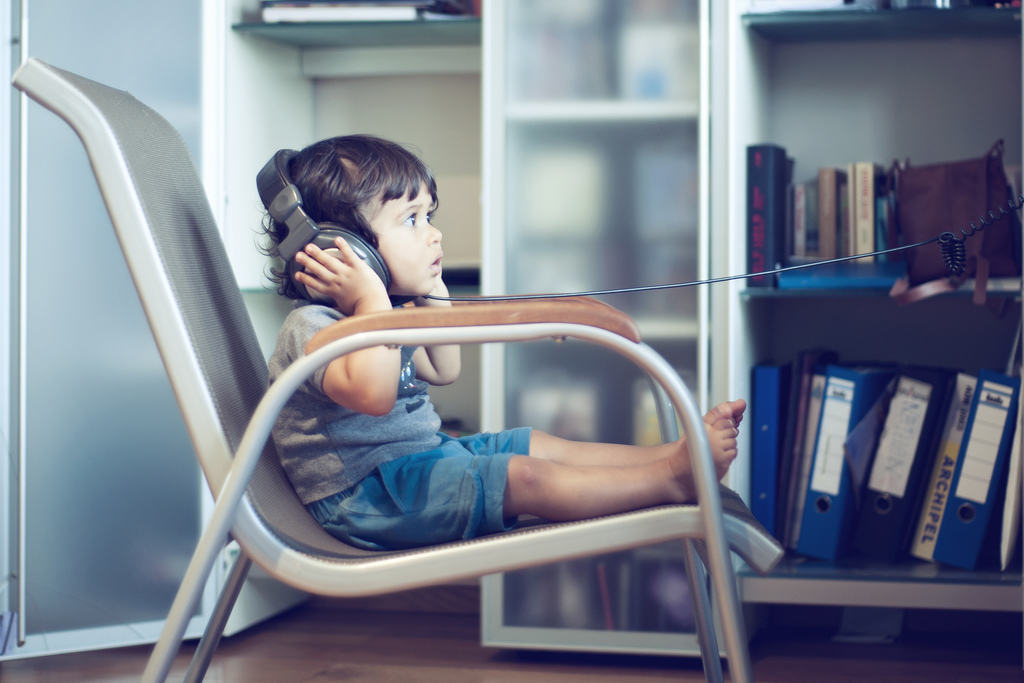Contents:
- Medical Video: How playing an instrument benefits your brain - Anita Collins
- What is the relationship between music and speech?
- How was this research conducted?
- Research shows that music can make it easier for babies to learn to talk
- The importance of interacting with music
- Will the type of music affect?
- Are there other effects from listening to this musical pattern?
Medical Video: How playing an instrument benefits your brain - Anita Collins
Recently, research at the University of Washington's Institute for Learning & Brain Sciences (I-LABS) shows that when you play various kinds of music when your baby is 9 months old, this will help your child develop skill perception, including helping your child learn to speak.
The researchers found that when the baby listens to a variety of rhythmic patterns of music, it can increase his ability to capture and make predictions about the rhythmic patterns of everyday conversation and conversation. This shows that having experience listening to various types of music as a child can affect cognitive abilities as a whole.
What is the relationship between music and speech?
Every baby will experience a complicated world, where he must recognize many sounds, light, and sensations continuously. Babies will begin to recognize the patterns of the activity and predict what will happen next. Perception skills are an important part of cognitive abilities, so if these skills are developed early, it can have a positive effect on the ability of the child to learn.
Like music, language also has a strong rhythm pattern. How to spell each syllable will help us interpret the meaning of each voice (word) spoken, and finally understand what others say. The ability to interpret various forms of sound is what can help the baby learn to talk.
How was this research conducted?
Researchers at I-LABS conducted a randomized experiment to see whether "teaching" the baby about the rhythm of music would help him learn the rhythm of sound when other people spoke. Everyone who participated in this experiment had the same characteristics, namely speaking in one language (English), and the frequency of babies listening to music before this experiment was almost the same. All the parents of this baby are not from musicians.
Done for a month, 39 babies attended 12-15 minutes of playing sessions in the laboratory accompanied by their parents. Divided into 2-3 groups, babies sit with their parents who guide them during the activity.
20 of the 39 babies entered the group where the babies were played with music for 3/4 and had a difficult rhythm (for example jazz), while the researchers led the baby to move the maracas on their feet to the music, until finally the baby sways engrossed in the rhythm of the music.
19 other babies entered the group where the babies were not played music at all. Instead, they play with cars, beams, and other objects that need movement but without music.
The researchers divided the babies into two groups with the aim that in these 2 groups, all babies experienced social activities that needed active participation and body movement. These things are known to help people to learn. The striking difference from the two groups is that in the first group the babies move due to the rhythm of the music, and the other groups do not.
During the week after the playing session was over, parents and babies returned to the laboratory and the researchers measured the baby's brain response. The researchers used magnetoencephalography (MEG) to see the exact location and time of brain activity. While sitting on scanner, the babies are heard various kinds of music sounds and the voices of people talking, but each sound is played with a rhythm that is cut into pieces. The baby's brain will show a certain response to indicate that the baby can recognize when the sound rhythm is cut. The researchers focused on analyzing 2 parts of the brain, namely the primary auditory cortex and the prefrontal cortex. These two parts of the brain are an important part of cognitive abilities, such as controlling attention and recognizing sound patterns.
Research shows that music can make it easier for babies to learn to talk
The results of the experiments show that babies belonging to the group that is played this music have a stronger response to the brain against the interruption of music and sound rhythms compared to babies who are members of groups that are not played by music. This strong response is seen in the two parts of the brain studied, namely the primary auditory cortex and the prefrontal cortex. This shows that indeed listening to musical variations can increase a baby's ability to recognize patterns in complicated sound rhythms, and the influence of music can be related to how the baby learns to speak.
The importance of interacting with music
Medical News Today talk with Dr. Patricia Kuhl, one of the researchers about how active the little one must be to benefit from listening to music. Dr. Kuhl explained that the activity of children is very important in learning music and language. In Dr.'s research Kuhl and his colleagues previously found that when a baby listens to people talk, the part of the brain that is used to respond to speech will be active, even though the baby cannot speak. The baby always wants to interact with the surrounding world, such as wanting to respond to the conversation, swaying to the rhythm of the music, or the baby wants to make his own music. These researchers argue that the baby's response to music (when the baby sways when he hears music) is one of the important parts of the success of this experiment.
Will the type of music affect?
All types of music have their own patterns. The factor that affects the baby's brain is the sound pattern, not the type of music. So, all types of music can be applied in this activity. Researchers argue that babies who listen to music will learn to recognize patterns, and perceptions of these patterns are very important in the learning process, not only in music but in other things as well. The researchers also saw that the effects of this music also influenced speech.
Are there other effects from listening to this musical pattern?
Until now, researchers have not yet known whether this activity also affects the ability of the baby to recognize visual patterns or other patterns. However, researchers agree that learning to predict patterns is a very important ability that can improve learning skills in general. The researchers also did not know whether this activity had the same effect if it was only done when the child was older.
READ ALSO:
- Understanding the stages of development of children's speech
- Effects of Various Music Genres on Our Mood
- Hygienic Hypothesis: Is It Really Too Clean Is It Unhealthy?
Photo: Philippe Put












